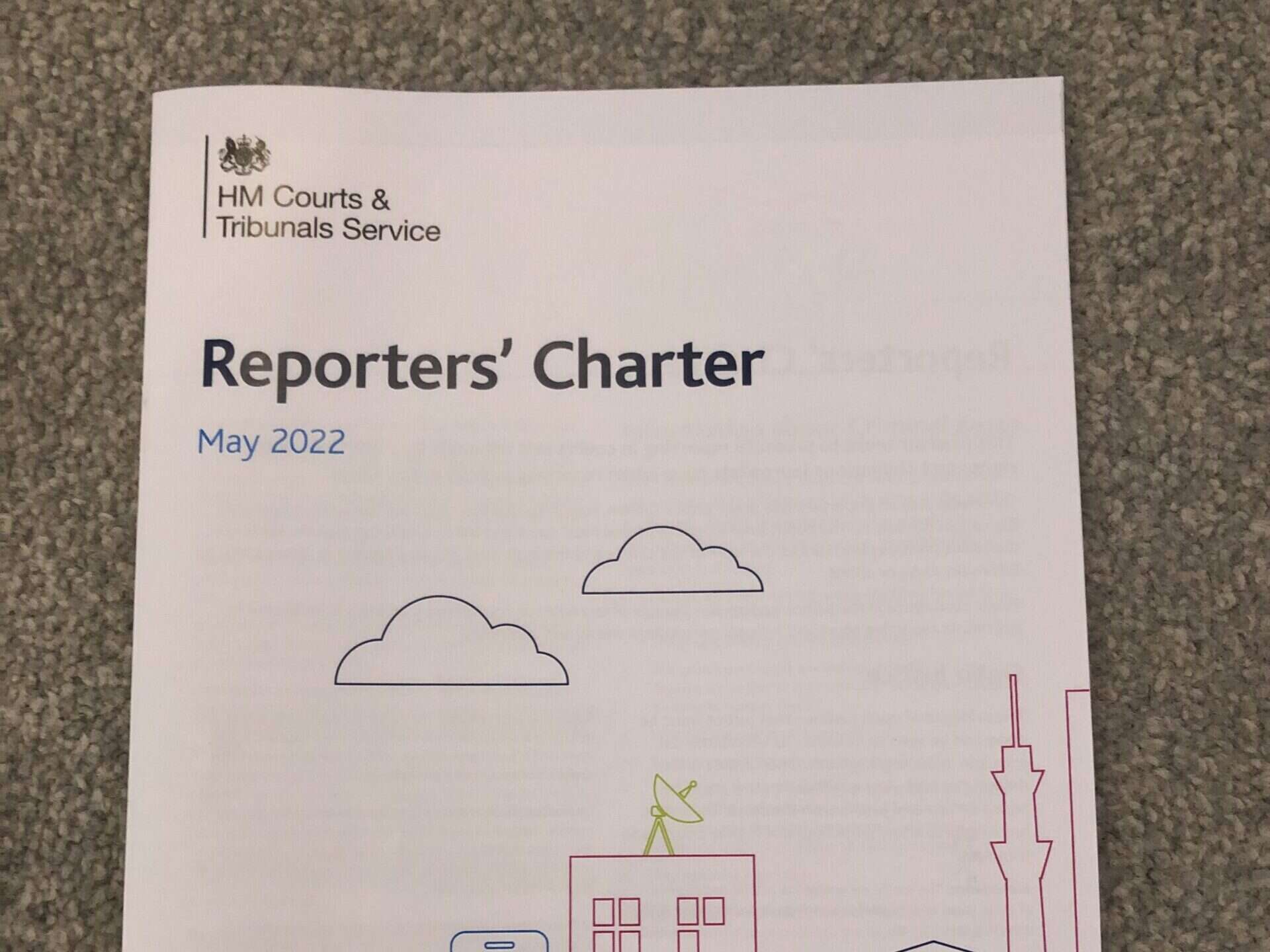
The Ministry of Justice has published a “reporters’ charter”, a document listing in one place the “rights” journalists should be afforded during court reporting.
The charter’s introduction comes amid recent warnings about the availability of “open justice” in the UK.
The charter launched on Wednesday at the Society of Editors’ “Future of News” conference.
Speaking at the event, ITN head of legal and compliance John Battle – who wrote to The Times in November 2021 proposing the charter – said it would be a “working tool” for journalists to use in court.
“I think there is increasing recognition within the courts and the judiciary that courts need reporters, because the public get their information from journalists…
“And in order to have the rule of law, for the public to understand how justice works, work with judges and work with the courts, they need information”.
Developed by HM Courts & Tribunals Service and the Media Lawyers Association, the charter summarises “the rights and obligations journalists have when reporting judicial proceedings”.
Those rights include:
- the ability to attend open court and tribunal proceedings, including those with reporting restrictions
- remote access to proceedings when physical attendance is available “but access cannot be guaranteed”
- the ability to take notes wherever a reporter is sat in the courtroom
- the ability to use phones and laptops
- the ability to publish “most details of what happens in court on social media platforms… subject to the same legal restrictions as any form of court reporting”
- the provision of wifi and, normally, dedicated press seats
- to be notified of reporting restriction applications and given an opportunity to make representations, either in writing or orally.
The disparate way in which media court rights are presented has reportedly led to confusion on the part of reporters and judges as to what journalists are and are not entitled to.
Battle told Parliament’s Justice Committee in January: “If you’re going along every day to the courts and you’re finding it difficult to find which reporting restriction you’re supposed to be applying or not, or you’re not being given access to documents which you’re entitled to, it’s not going to encourage reporters.”
But, Battle said on Wednesday, the reporters’ charter is an authoritative document which can be presented when such rights are in question.
“This is a document which has been approved and has the stamp of the Ministry of Justice on it – not just the Media Lawyers Association and the Society of Editors talking amongst ourselves, this is the Ministry of Justice.”
Justice Minister James Cartlidge said in a statement: “Justice has to be seen to be done to maintain public confidence and the media play a vital role as their eyes and ears in the courts.
“This Charter will help ensure reporters retain the access to courts and information they require to keep the public informed.”
Society of Editors executive director Dawn Alford said: “We congratulate the Media Lawyers Association and HMCTS on this achievement. The Society is delighted to endorse, promote and distribute the Charter.”
The charter’s introduction follows warnings that “open justice” is being challenged by cuts to local reporting and the pandemic-induced move to online magistrate hearings.
[Read more: UK journalists fear online magistrate hearings will mean ‘justice in the dark’]
The charter can be accessed online here.
Picture: Press Gazette
Email pged@pressgazette.co.uk to point out mistakes, provide story tips or send in a letter for publication on our "Letters Page" blog
